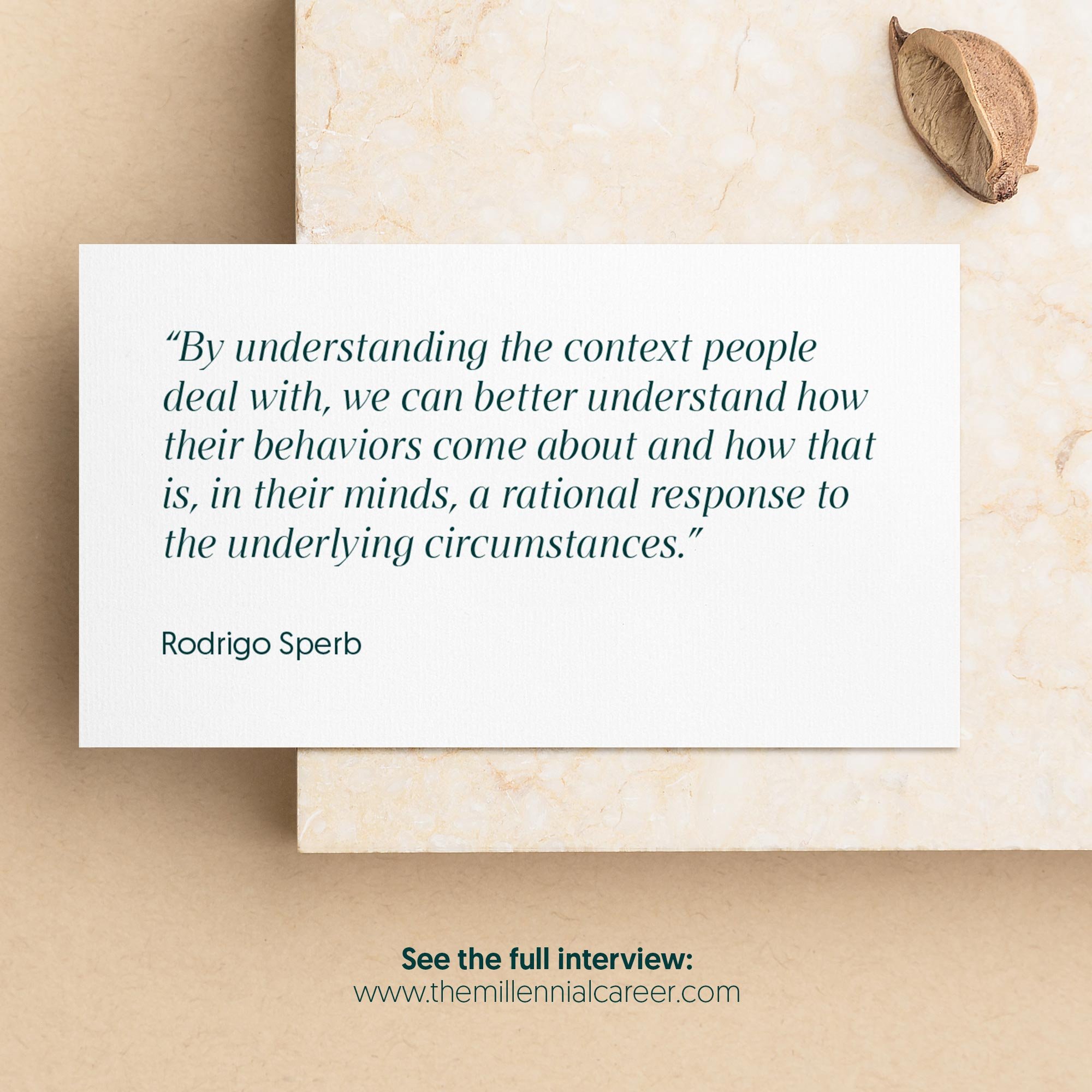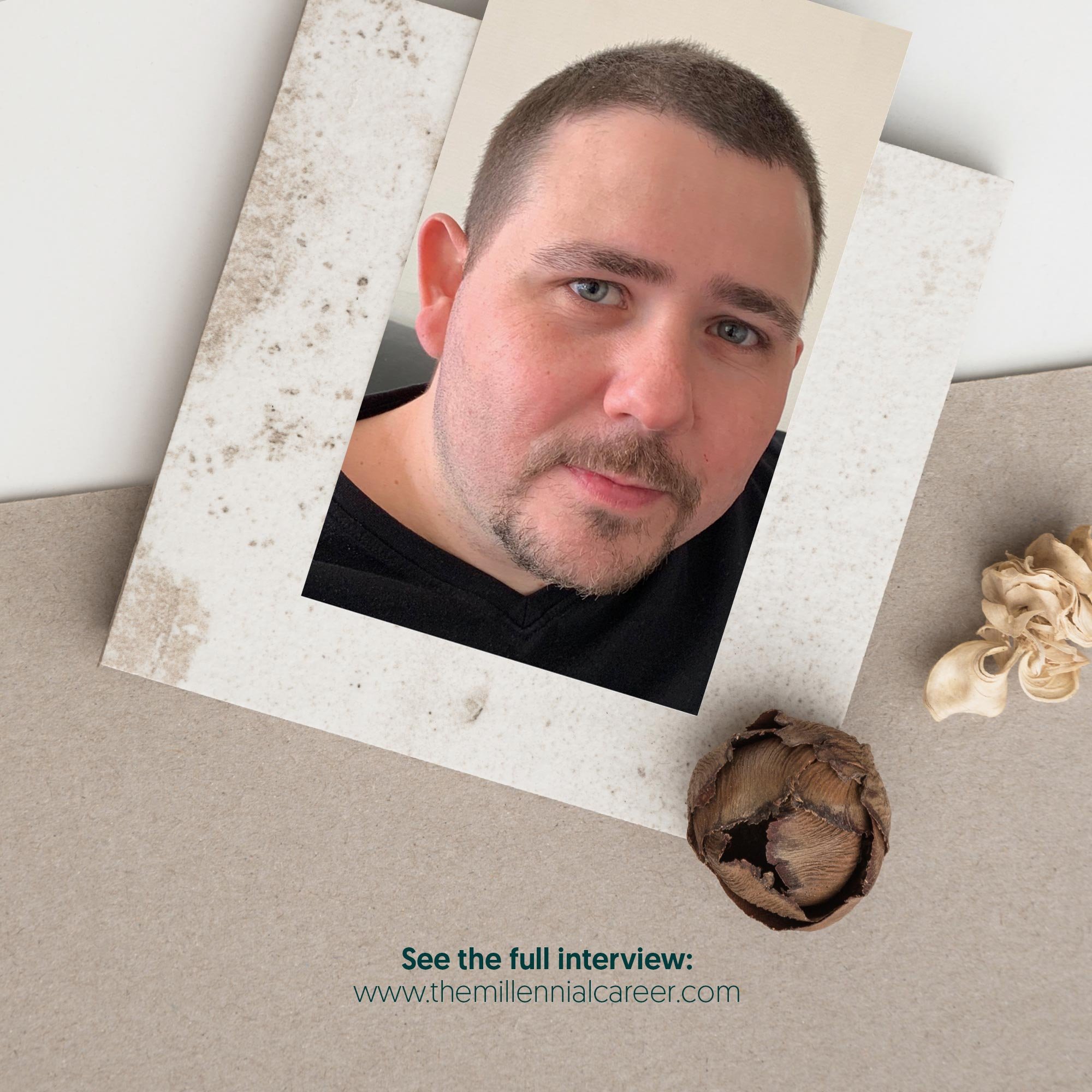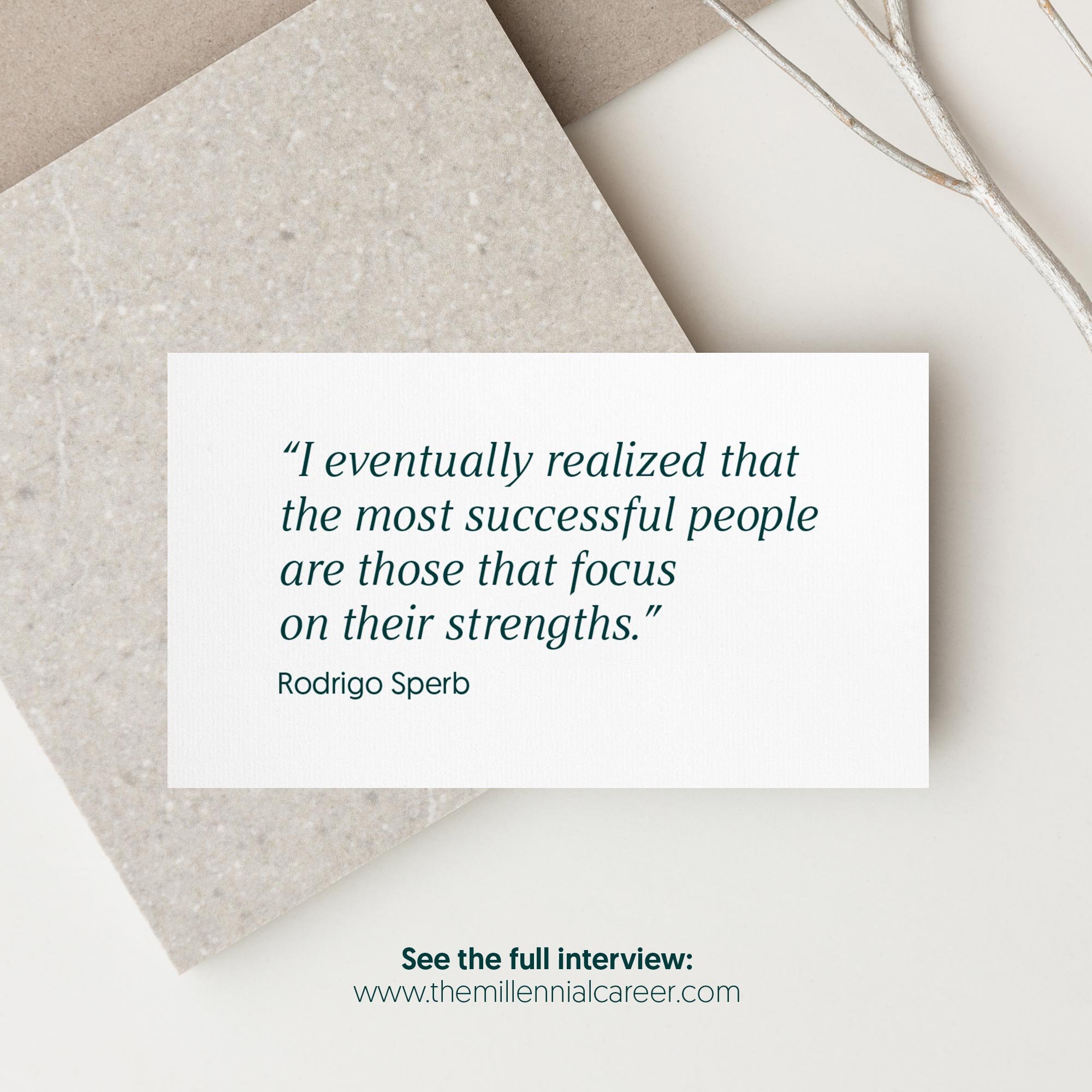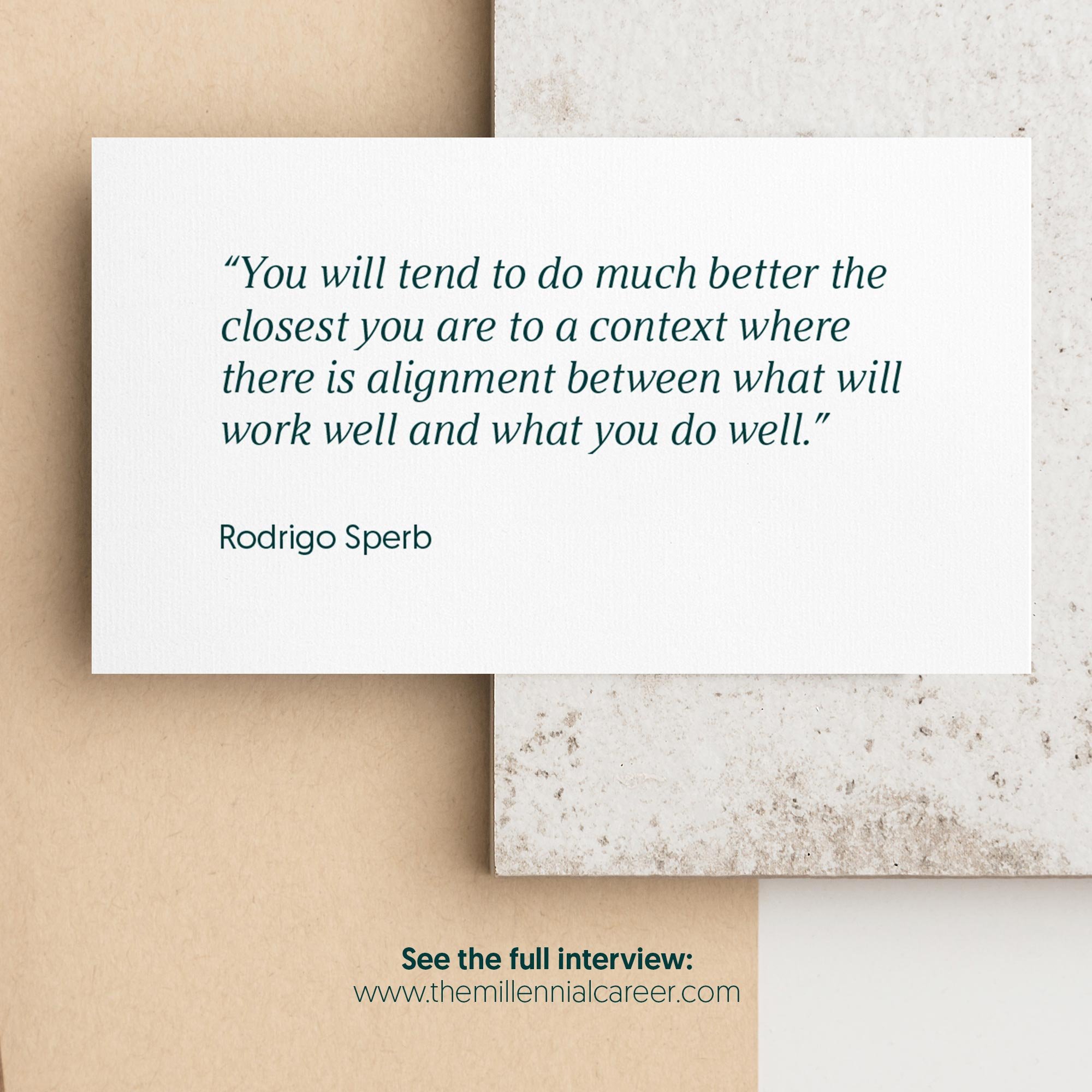What Messi can teach us about career success
Ever wondered how people got to where they are today in their career? Where did they start and what were they thinking at the time? In this series, professionals from all walks of life look back at their start and share some lessons they wish they’d known back then.
In this episode of Career Talks, Rodrigo Sperb, Maps Director for location technology company TomTom, shares what Messi disproportionately using his left foot when playing football and your career have in common, plus a few other lessons he picked up over the course of his career.
Enjoy!
Click the button below to watch the full story, or scroll down to read the written Q&A.
Nico: How did you get your first job?
Rodrigo: It somewhat depends how strict you are in the definition of what a job is, as I did some gigs when I was a teenager, including trying to help out my father, a civil engineer, with learning how to draw house projects in CAD.
But if we go with a more formal definition, I started as a volunteer intern, later earning some early science studentships, in a research laboratory, doing that during nearly my entire undergraduate (BSc) university studies of 4.5 years.
Because of that, I was offered a project-based contract for one year, part of grant to develop information systems for the federal government in Brazil, my home country.
I was responsible for the GIS/Maps part of the project – I left the project 9 months later as I was granted a scholarship to study my MSc. in the Netherlands.
Nico: How did you get your first promotion?
Rodrigo: Essentially, by taking charge and responsibility without looking too much whether that was part of my official job description or not. I was somewhat lucky that I was part of setting up a new operation and there was plenty of room for anyone wanting to step up and do whatever needed.
I did so, and while it took a bit more time than expected – and I had a great manager at the time that was very open and honest about it and kept things straight by saying when he tried and was asked to give it some more time; we were in it together and we both had a bit more patience and continued working towards it.
Nico: What is the most important lesson you learnt in your career so far?
Rodrigo: There are plenty. But if I should limit to one, I would probably narrow it down to the general pattern of the importance of how context matters. That has many fundamental implications, and perhaps to spell out a few close to my heart:
By knowing the context, we are better off to get to know the problem and what we can do about it.
By understanding the context people deal with, we can better understand how their behaviors come about and how that is, in their minds, a rational response to the underlying circumstances.
By recognizing context differences, we can recognize that often there is no “one-size-fits-all” sort of thing, or that what works in one place in one context will not necessarily do somewhere else, and things like that.
Nico: What is the hardest career lesson you had to learn so far? What do you see now that you didn’t see while you were in it?
Rodrigo: That not everyone operates under similar codes of values and principles as you do.
I was brought up by my parents with a sense that trust is something you give upfront and is reinforced or undermined by even little things. That you have got to give the benefit of the doubt first to pretty much anyone and genuinely treat others with a degree of innocence almost, unless clearly otherwise.
I had to learn that there are moments you need to be skeptical about, suspecting of other’s intentions. It still is a painful process because I have those principles that I was brought up with very ingrained in my being. I am fortunate to have a wife which is way more skeptical and suspicious of people – so I try to observe and learn from her – and hopefully we learn to balance things out for a healthy middle ground.
Nico: What is one career advice you would give your younger self?
Rodrigo: That while there is a place for acting on your limitations or areas of improvement, perhaps the single least told story is how much more relevant it is to learn how to maximize and leverage your strengths. And that you will tend to do much better the closest you are to a context where there is alignment between what will work well and what you do well. It was a bit hard for some time, being very self-critical myself. But I eventually realized that the most successful people are those that focus on their strengths.
For example, you will not see Messi artificially trying to round up his skills by better balancing utilizing both feet while playing football/soccer (if you didn’t know, he makes a disproportionate use of his left foot compared to average players, who were often pushed to learn how to do things with both feet while learning so to be more “rounded”).
So, don’t pursue being rounded because that is where average and mediocracy live. Aim at sharpening and having “spikes” in a few key areas you are already naturally good at and build on that.
Did you find this interview helpful?
If you did, yay! I’m so happy that this is the case. Sign up to hear from me directly in your inbox.
If you didn’t, I’d love to hear from you. What didn’t hit the mark for you and what would you like to read about instead? Email me directly and let me know.



